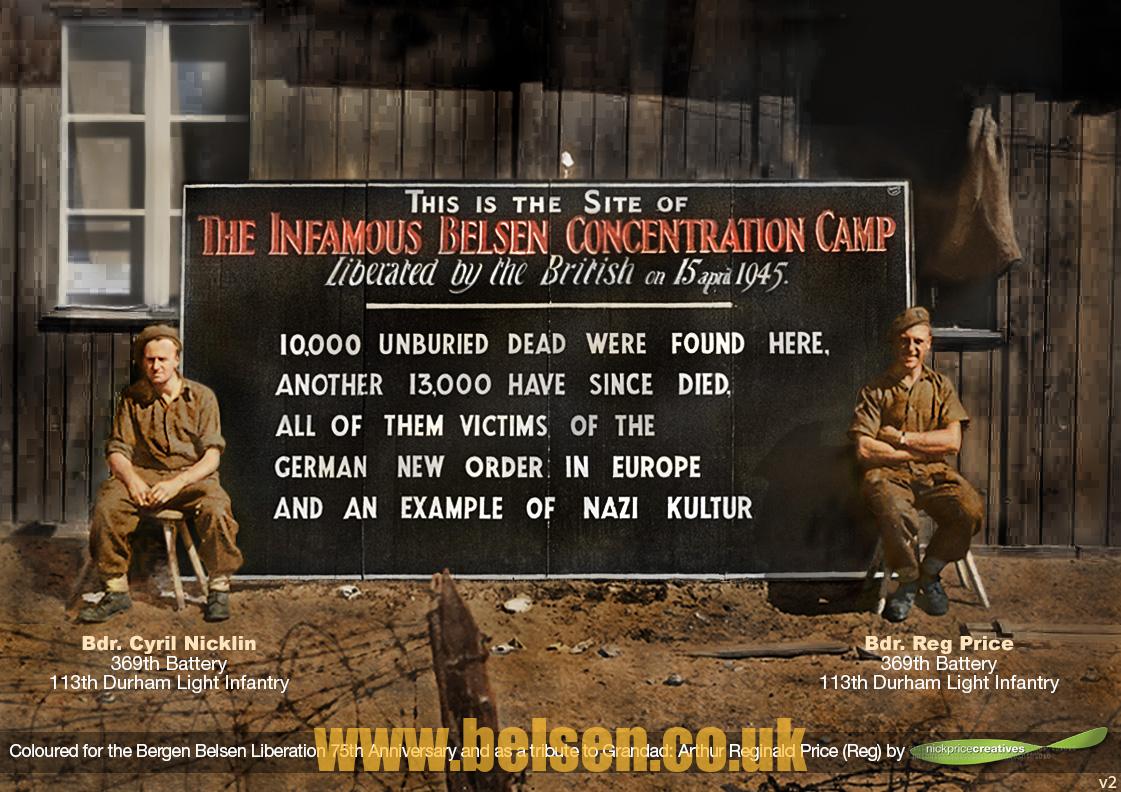-
The Signwriter at Belsen
Hello welcome this website section relating to the DLI and the part they played at Belsen Concentration Camp in 1945. 22,658 total views
-
Bernard Levy
Bernard Levy, a corporal in the British Military Government at the time, returned to Bergen-Belsen with Presenter Natasha Kaplinsky and spoke of the memories he tried so hard to forget. 24,984 total views
-
Jack Marcovitch – Canadian Jewish News.
Jack Marcovitch (1923-1994) was born in Montreal, Canada. His original page can be found HERE. In 2025, for the 80th anniversary of the liberation Marcovitch’s daughters—Linda Eisenberg and Gloria Borts—join The CJN Daily to share what their father brought home with him and how the trauma marked him for life. The interview has been reproduced here with the kind permission of The CJN. 9,361 total views
-
Harry Skeggs – 32 CSS
The funeral of Harry Skeggs, a committed and engaged member of St Catherine’s congregation for over sixty years, took place at Chelmsford Crematorium on Wednesday 10th May 2017. Below is an edited version of the tribute and address given at that service. 19,155 total views
-
Medical Students: Kings College
King’s College Hospital Medical Students. 21,750 total views
-
Sydney Gottlieb
General practitioner who became a leading psychiatrist to jazz musicians, actors, and writers. 25,042 total views
-
Michael “Moe” Resin
Michael “Moe” Resin talking with prisoners at Bergen-Belsen after the camp was liberated in 1945. 19,486 total views
-
Sister Mary Bond (29th BGH)
Posted with 29th British General Hospital (29th BGH) to Belsen in May 1945, by which time ‘I was proud to be a senior Sister with many added responsibilities’. 18,545 total views
-
Fraser Eadie (Lt Col)
1st Canadian Parachute Battalion 23,006 total views
-
The U.K. Holocaust Knowledge and Awareness Survey
Gideon Taylor, President of the Conference on Jewish Material Claims Against Germany (Claims Conference), today (November 10, 2021) announced the release of a United Kingdom Holocaust Knowledge and Awareness Survey including a comparison among England, Scotland, Wales and Northern Ireland all of which show a surprising lack of awareness of key historical Holocaust facts, including the U.K.’s own connection to Holocaust history. 18,354 total views

